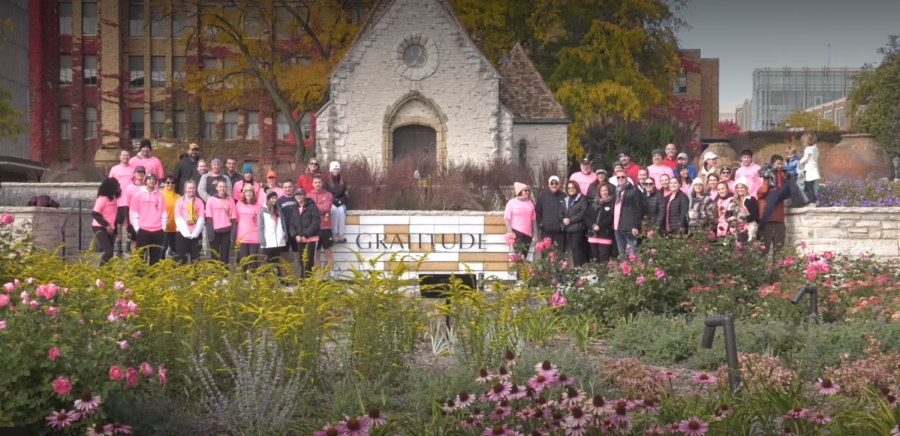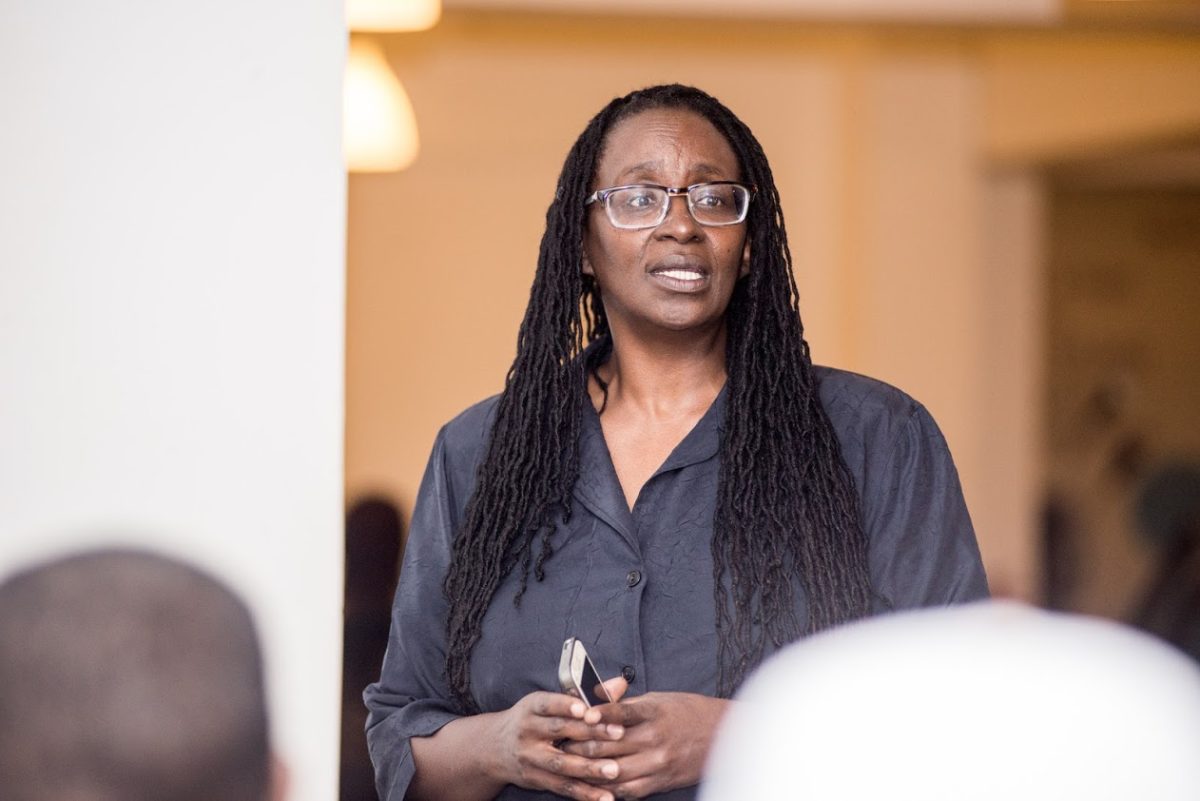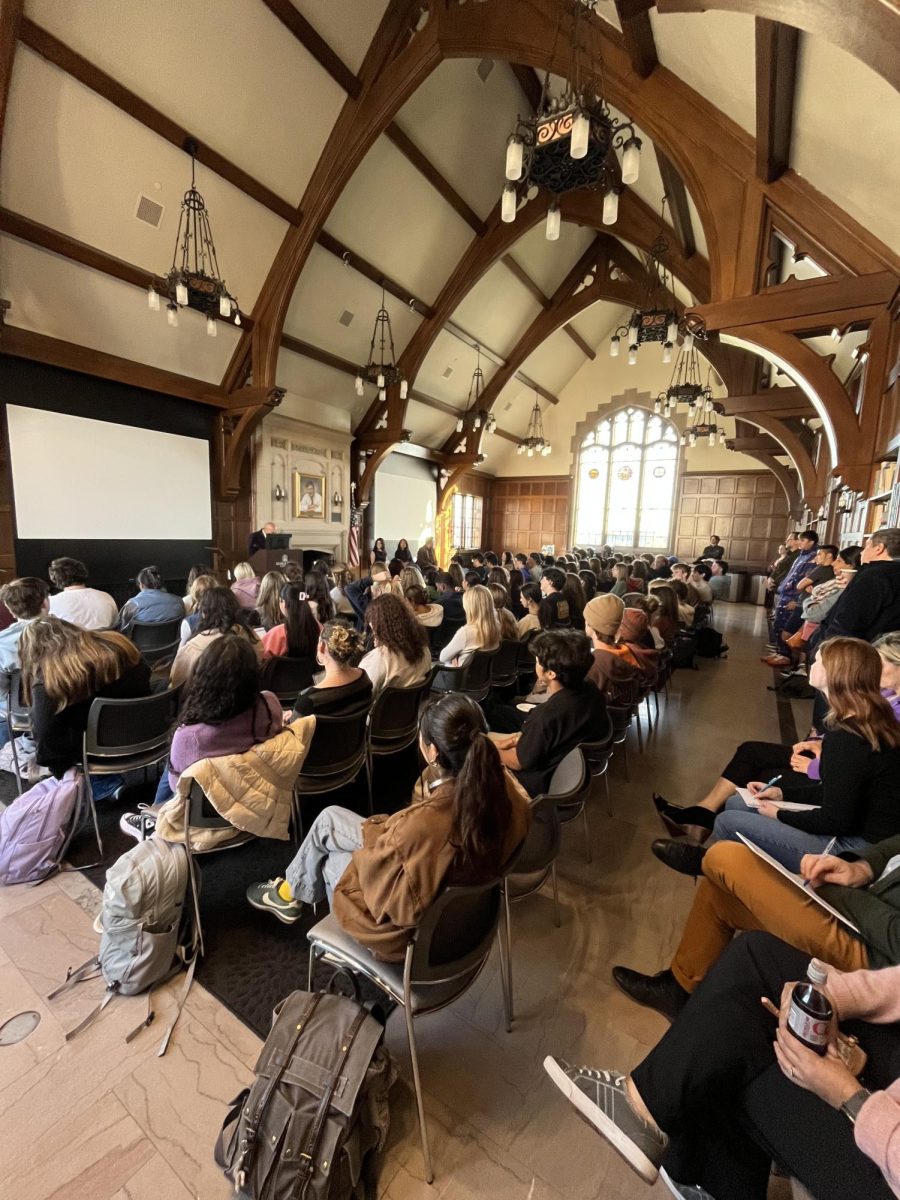 Last Thursday’s Tribune all-staff meeting was sobering, to say the least. We sat in silence (not something we are usually capable of doing), as our editors and advisor explained to us the informal agreement of the student media board’s discussion of reducing the length of the Tribune to a mere eight pages. It was an emotional meeting – I think it’s safe to say some of us were in shock at the decision, which seemed incredibly arbitrary and out-of-the-blue, especially to those of us who do not regularly interact with the board.
Last Thursday’s Tribune all-staff meeting was sobering, to say the least. We sat in silence (not something we are usually capable of doing), as our editors and advisor explained to us the informal agreement of the student media board’s discussion of reducing the length of the Tribune to a mere eight pages. It was an emotional meeting – I think it’s safe to say some of us were in shock at the decision, which seemed incredibly arbitrary and out-of-the-blue, especially to those of us who do not regularly interact with the board.
While it was emotional and frustrating, the announcement should also serve as a reality check, not just for those of us on staff, but for the entire Marquette community. As our adviser reminded us last week, similar cuts, not only in publication size, but to staff numbers and salaries are happening at publications all over the country. I remember sitting in high school journalism classes more than four years ago, discussing the changing industry and the switch from print to online.
But don’t you dare let anyone tell you that journalism is dying. There needs to be a permanent moratorium put on that phrase. Journalism is by no means dying. Journalism is changing, there is no doubt about that, but it is still a thriving institution that plays a critical role in our society.
While it is crucial for journalism students (and everyone else) to face the reality of the changing world of the media, Marquette’s administration and community need to realize the difference between a large publication and a student newspaper. Contrary to what some people seem to believe, people all over campus do, in fact, pick up the Tribune and read it on a twice weekly basis. The newsstands in Johnston Hall are almost always the first to empty out, and understandably so, as communication majors are encouraged to keep up to date on the news. I work as a desk receptionist in Carpenter Tower, which houses the Office of Residence Life, and I see staff members pick up copies of the newspaper every Tuesday and Thursday. There are always Tribunes scattered throughout the AMU on tables, in the Brew and in the library.
This newspaper you are reading right now serves a very important purpose on campus. It is a link between students and the administration, a direct outlet for us to voice concerns about Marquette, praise the university and suggest changes we would like to see made in the school. It is also a way for the university to respond, address these concerns and explain decisions made at higher administrative levels.
The role of the Tribune at Marquette mirrors the role of other newspapers and news sources throughout the world. Journalism is a link between citizens and governments. It was founded as a forum for discussion and as the “Fourth Estate” of the government, bearing the responsibility to check our lawmakers to ensure they are truly working for the people and not against the interest of the greater population.
Because of the importance of newspapers in society, journalists have learned to defend their right and responsibility to their readers. Journalists have long been a steadfast bunch.
Right now, all over the world, there are journalists who literally risk their lives in order to do their jobs and bring important, accurate information to the general public. In December, CNN.com reported that 2012 was the deadliest year for journalists since Reporters Without Borders began monitoring reporter deaths in 1995. Most of the 2012 deaths occurred in Somalia, Pakistan and Syria, where journalist and Marquette alum James Foley went missing in November.
I had the great fortune to hear Foley speak on campus just last fall and was incredibly moved by his dedication to his reporting and the struggle of journalists to accurately report on conflicts throughout the world. Foley was captured and imprisoned in Libya in 2011 and was so committed to his work that he returned to the Middle East to cover the Syrian conflict. I was inspired to hear him explain how simple the idea of journalism is for him: telling a story.
The reality of the changing state of journalism cannot be ignored. But it cannot be used as an excuse to simply stop journalists from being able to tell the stories they feel obligated to share with their readers.
While the board may not be trying to suppress our voices, the fact is that most students who read the Tribune read it in print, not online. Cutting funding to the Tribune cuts students’ ability (not just the Tribune staff’s ability) to have their voices heard on campus. Journalists are a passionate group of people who have learned to fight for what we believe in, and I am proud to call myself part of that group. I believe in journalism. Long live the Trib.
—
Caroline Campbell is a senior in the College of Communication with a major in journalism and a minor in history. Email her caroline.campbell@marquette.edu.











John Hanson • Feb 19, 2013 at 1:04 pm
Please don’t go to Somalia and get kidnapped by pirates. I like how passionate you are about it. And journalism is very important and won’t die out like you say. People have need to be told what’s going on around them. Journalists fill that need.